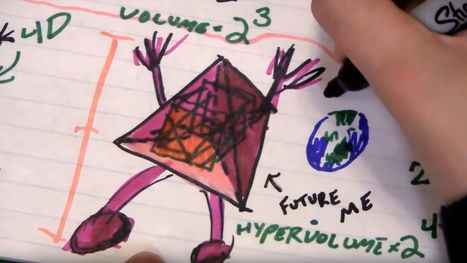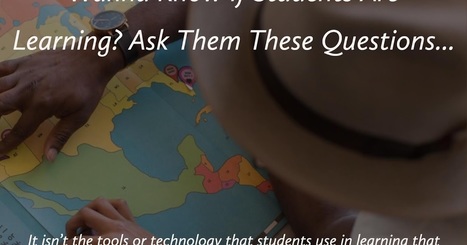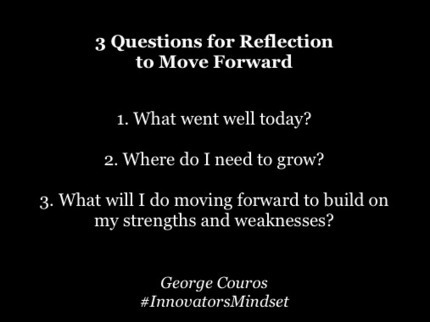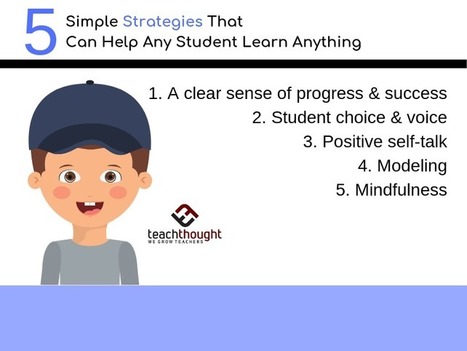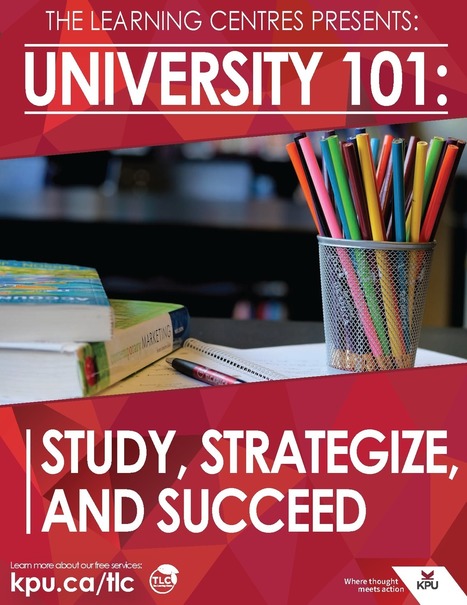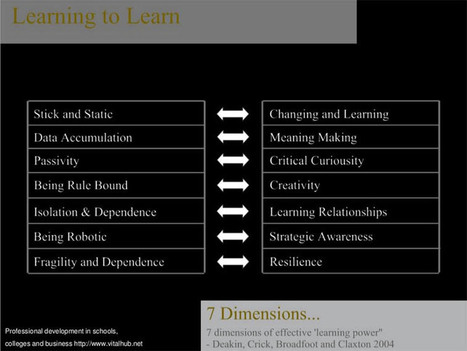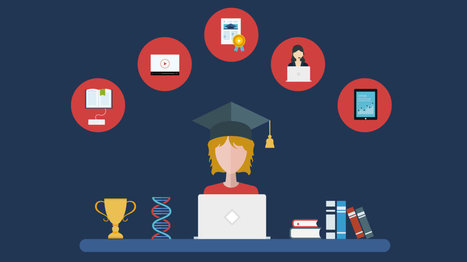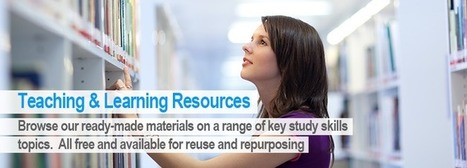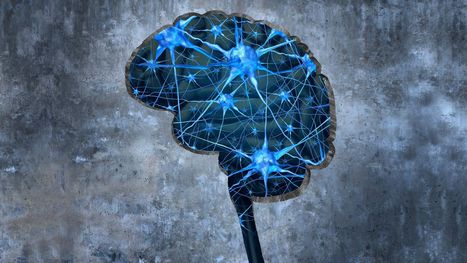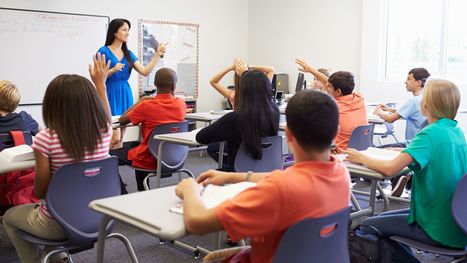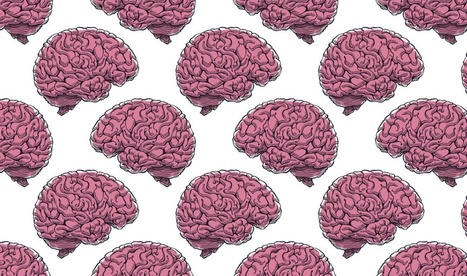When I think about the times I definitely knew what I was talking about, versus the times I kinda, sorta, might have, maybe did… well…. Let’s just say that wisdom doesn’t always come with age, but hindsight certainly does. We may cringe when we remember the moments we were overconfident, out of our depth, etcetera, and so forth—when we lacked the critical capacity known as intellectual humility. It’s a quality that can save us a lot of shame, for sure, if we’re the type of people capable of feeling that emotion.
Get Started for FREE
Sign up with Facebook Sign up with X
I don't have a Facebook or a X account

 Your new post is loading... Your new post is loading...
 Your new post is loading... Your new post is loading...
Current selected tag: 'learning to learn'. Clear
Sadly, this high school experience resulted in a new high school graduate who had no concept of time management, study skills, or critical thinking (McGuire, 2015). He had no idea how to take responsibility for his own learning, and despite my pleas that he needed to “study differently” in college, he had no idea what this meant or how to go about this task.
It’s long been known that drawing something helps a person remember it. A new study shows that drawing is superior to activities such as reading or writing because it forces the person to process information in multiple ways: visually, kinesthetically, and semantically. Across a series of experiments, researchers found drawing information to be a powerful way to boost memory, increasing recall by nearly double.
It can be a struggle to best help students understand what they are learning or for students to articulate their learning in meaningful ways. This was especially difficult for me starting out in on my teaching journey. Based on how I had been taught to be an educator the best ways to know if students are learning was to give them a test. If they failed, it was their fault and they needed to do better next time. It took me a long time to learn that in the process of learning the teacher and the student need to be partners.
“Student Voice” is something that many schools are focusing on and for a good reason. If we, as educators, understand that we serve our students and not the other way around, getting their thought and feedback for not only problems but solutions in moving our schools forward, is crucial. From my experience though, I have seen a lot of money, time, and effort, in getting thoughts and feedback from students, listening to their voice, and then often, no action based on what they have shared. Dean Shareski wrote a challenging post on this and shared the following thoughts on “Student Voice”:
Sometimes the details former students recall from class is nothing short of amazing. A few years ago I had a student named Abby in my history class
As a professor of cognitive psychology, I teach about memory, especially about when and why our memories often fail us. Students are excited to apply this material to their everyday lives.
Empowered with some basic information about how the mind and brain work during learning, teachers can plan to use some new strategies for supporting high student achievement.
University 101: Study Strategize Succeed helps you to create a foundation for post-secondary studies by learning how to learn. By taking the time to read this book and work through the exercises included, you are investing in the skills that will support you in all of your classes and future learning. Successful students share a set of skills and habits in common. The good news is that these skills are not a secret; anyone can learn the skills that support successful learning. By taking some time to learn proven study strategies, you will be able to reach your learning goals, and avoid the pitfalls that can take you off-track.
Elizabeth E Charles's insight:
This open textbook has been added to our key study resources for our students.
Guy Claxton is professor of education at Bristol University, and author of Hare Brain, Tortoise Mind How Intelligence Increases When You Think Less (1997). Among other concepts, he is interested in how people learn.
Science is constantly changing, and although we’ve come a long way since the days when it was widely believed that older people couldn’t learn new things, a number of learning myths have stood the test of time despite having no grounding in scientific research.
"Though failure is often described solely as a means to determine a path towards success, educators and panelists at a recent two-day event at Teachers College, Columbia University stressed the importance of incorporating failure into learning and the ways to use it productively, in higher ed courses, K-12 classrooms and teacher preparation programs." Via EDTECH@UTRGV 
EDTECH@UTRGV's curator insight,
December 14, 2017 12:23 PM
Sometimes we learn more through trial and error than from getting it right the first time. I think we need to provide more opportunities to allow students to experiment without penalty for failure.
How an engineering professor who “flunked my way” through high school math and science went on to create the world’s most popular online course. Via Mark E. Deschaine, PhD |
From
bigthink
A study finds that even short breaks help you solidify new learning.
Dan Russell and Mario Callegaro write: "Search engines are amazingly powerful tools that have transformed the way we think of research, but they can hurt more than help when we lack the skills to use them appropriately and evaluate what they tell us. " Via Mary Reilley Clark 
Mary Reilley Clark's curator insight,
April 18, 2019 1:31 PM
A good overview to share with teachers and students. I've been sharing the concept of lateral searching with students this year. Several have reported how helpful it is when they're researching controversial topics, especially when they find blog posts at the top of their search results. They now look up the blog'a author before continuing to read the post itself. In many cases, they've found no information on that author, which makes them think twice about using that source!
In positive psychology, ‘flow’ is a term used to describe the optimal state of consciousness. It’s in this state that we become so energised and absorbed by what we’re doing that all distractions fade into the background and the hours seem to fly by.
Psychological Science in the Public Interest evaluated ten techniques for improving learning, ranging from mnemonics to highlighting and came to some surprising conclusions.
I broke a rowing machine yesterday at the gym. I don't know my own strength. Ironically, that's the very reason I attend the gym regularly. I want to know my own strength. I want to know what my limits are, and then try to exceed them. Apart from breaking the rowing machine, my fitness regime is going swimmingly (without the swimming, obvs). I have learnt a lot. I know about cross trainers, treadmills and weights. I thought a Dip Assist was someone telling me where to stick my Doritos*, until I discovered the weights area. And it was while I was working out at the gym this morning that this thought came to me: To know your own strengths, it's often wise to compete against yourself rather than anyone else.
Learnhigher is a network for promoting and facilitating the development and dissemination of high quality, peer-reviewed resources for learning development in the higher education sector. We aim to support the development of such resources as well as conduct and disseminate research into the use and effectiveness of learning development strategies and materials.
A new report from the National Academies of Sciences, Engineering, and Medicine highlights the dynamic process of learning throughout the life span.
Teachers have long known that rote memorization can lead to a superficial grasp of material that is quickly forgotten. But new research in the field of neuroscience is starting to shed light on the ways that brains are wired to forget—highlighting the importance of strategies to retain knowledge and make learning stick.
What do you really need to learn in life? How do you teach students to excel? What do successful learners do differently from others? What, in short, are their habits of mind?
What exactly is flow? Imagine for a moment that you are running a race. Your attention is focused on the movements of your body, the power of your muscles, the force of your lungs, and the feel of the street beneath your feet. You are living in the moment, utterly absorbed in the present activity. Time seems to fall away. You are tired, but you barely notice.
Strategies that target students’ metacognition—the ability to think about thinking—can close a gap that some students experience between how prepared they feel for a test and how prepared they actually are. In a new study, students in an introductory college statistics class who took a short online survey before each exam asking them to think about how they would prepare for it earned higher grades in the course than their peers—a third of a letter grade higher, on average. This low-cost intervention helped students gain insight into their study strategies, boosting their metacognitive skills and giving them tools to be more independent learners.
But Oakley is a self-described “former math flunky” who “retooled” her brain — and who has since made it her life’s work to help others learn how to learn by explaining some key principles from modern neuroscience. When students do not understand how their brains learn and retain material, they can develop misconceptions about themselves as learners — such as a faulty assumption that they are bad at a subject or that they suffer from performance anxiety. Oakley shares the common experience of students who reread their notes and think they know the material — only to enter a test and find that they cannot retrieve the information. “They are horrified and think they must have test anxiety.” More likely, says Oakley, they simply haven’t been taught how to study in a way that allows them to retrieve the information. |





